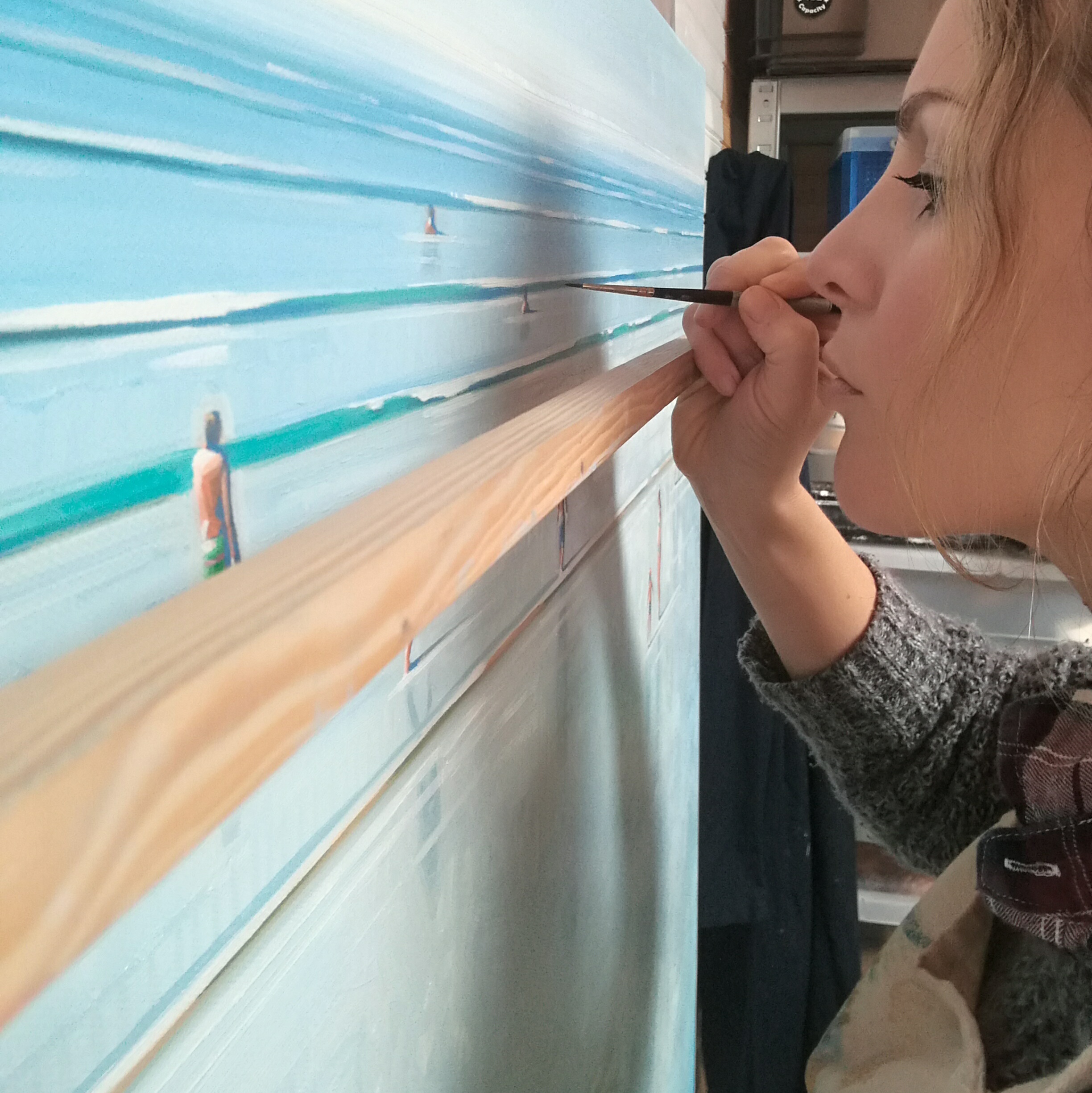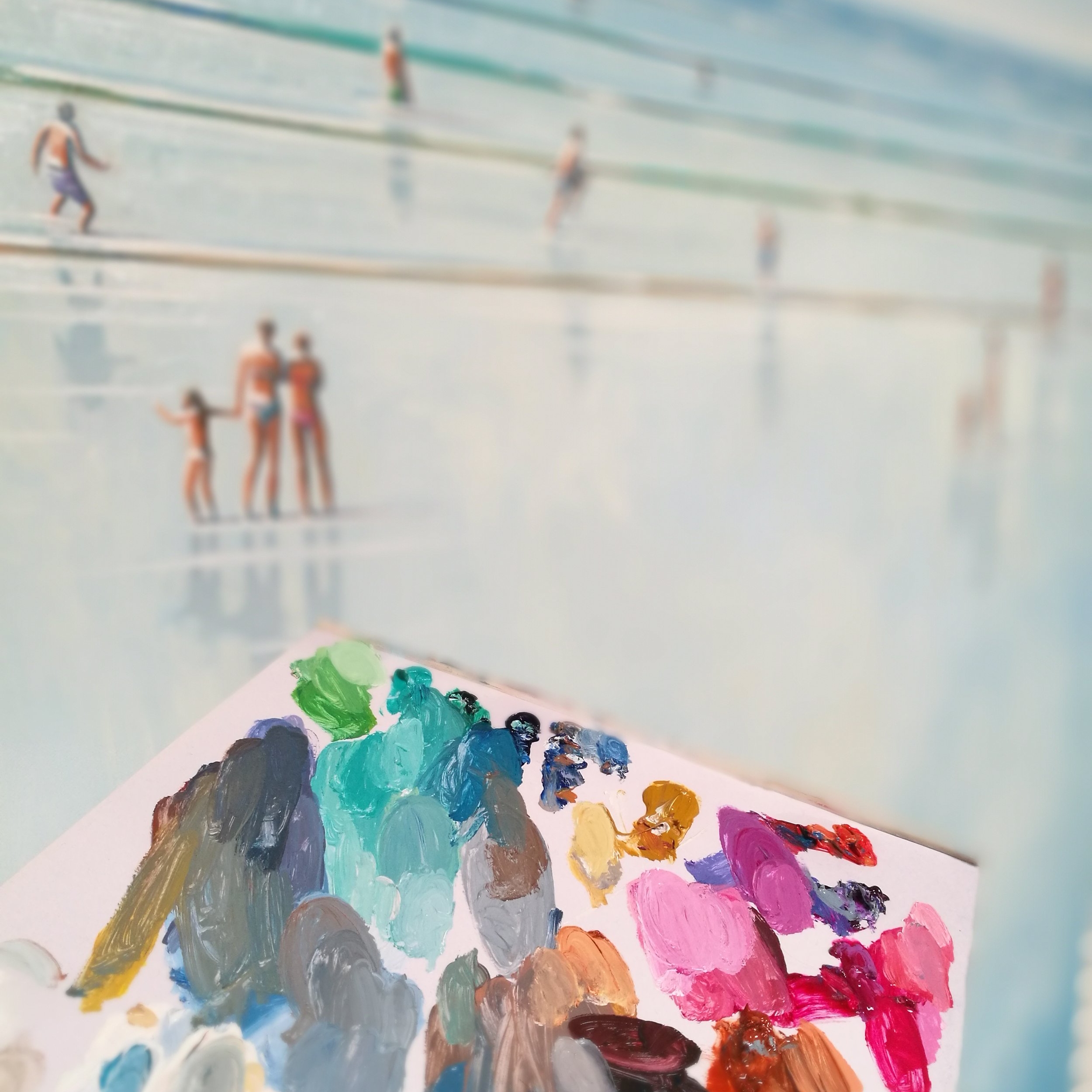In my Studio - Essentials for oil painting
What you need
I often meet people who say they are scared of trying oils. I can tell you from my experience that you have no reason to be. Here's a basic guide to what I use daily and why.
Space
Sounds obvious but you need somewhere you can paint and leave your piece to dry for a few weeks on an easel or fixed to a wall (I normally do both). Oils can take up to 5 days to be touch dry once you're painting is finished. So grab a well-lit space and make it yours (not in direct sunlight though).
Oil paints
I started by buying an affordable starter pack with 6 colours from Georgian Oils by Daler Rowney. Don't get anything cheaper as the consistency won't be anything like traditional oils but more like poster paints. Make sure your pack also includes a white. These days I have a range of more expensive oils but mainly I use oils by Winsor and Newton because they are great and easy to work with.
Palette
I use a tear-off palette by Winsor and Newton (seen above) and store it in an slightly bigger air-tight tub to make it stay wet longer. Some artists use glass but I find cleaning and scraping the paint off time-consuming.
Mahl Stick
This is basically a resting stick. Especially great if you have shaky hands like mine. You can see my very expensive one in the photo above that I got from the timber merchants up the road... lol. Helps me with all those straight lines and to lessen the amount of paint that I would get on my hands. Good for pastel work too.
Brushes
This is completely up to you and down to your own individual style. I use a range of soft flat-head Winsor & Newton brushes on canvas boards and wooden pannels myself plus a few tiny tiny ones for detail. On canvas I will use more coarse brushes. But I will have to cover this in more detail another day.
Oil mediums
These are what you add to your paint to make it thiner, thicker, smoother or to simply extend it. There are tons of them. Think of it like adding water to watercolour to be able to work the paint. I personally use linseed oil and stand oil to thin and thicken the paint. Also great for blending. Again I will go into these in more detail another time.
Solvents
These are for cleaning your brushes or to thin a 'wash' of paint. They are toxic so always use in a well ventilated room. I use Sansodor which I think is less toxic than turps for thinning coats and occasionally cleaning brushes. Always remember if its 'odorless, it doesn't mean the dangerous fumes are gone. You just can't smell them.
Cleaning
Due to the toxic issue of using solvents I mostly use 'Murphy's oil soap' (pictured above) for cleaning my brushes in-between colours. 98% natural and smells nice. Makes them soft too.
Remember, every artist has there own way of doing things and when I need help I am constantly on artists chat rooms trying to find new ways to solve my latest problem. Please feel free to contact me if you would like any more advice or if you need help directing in the right direction.



